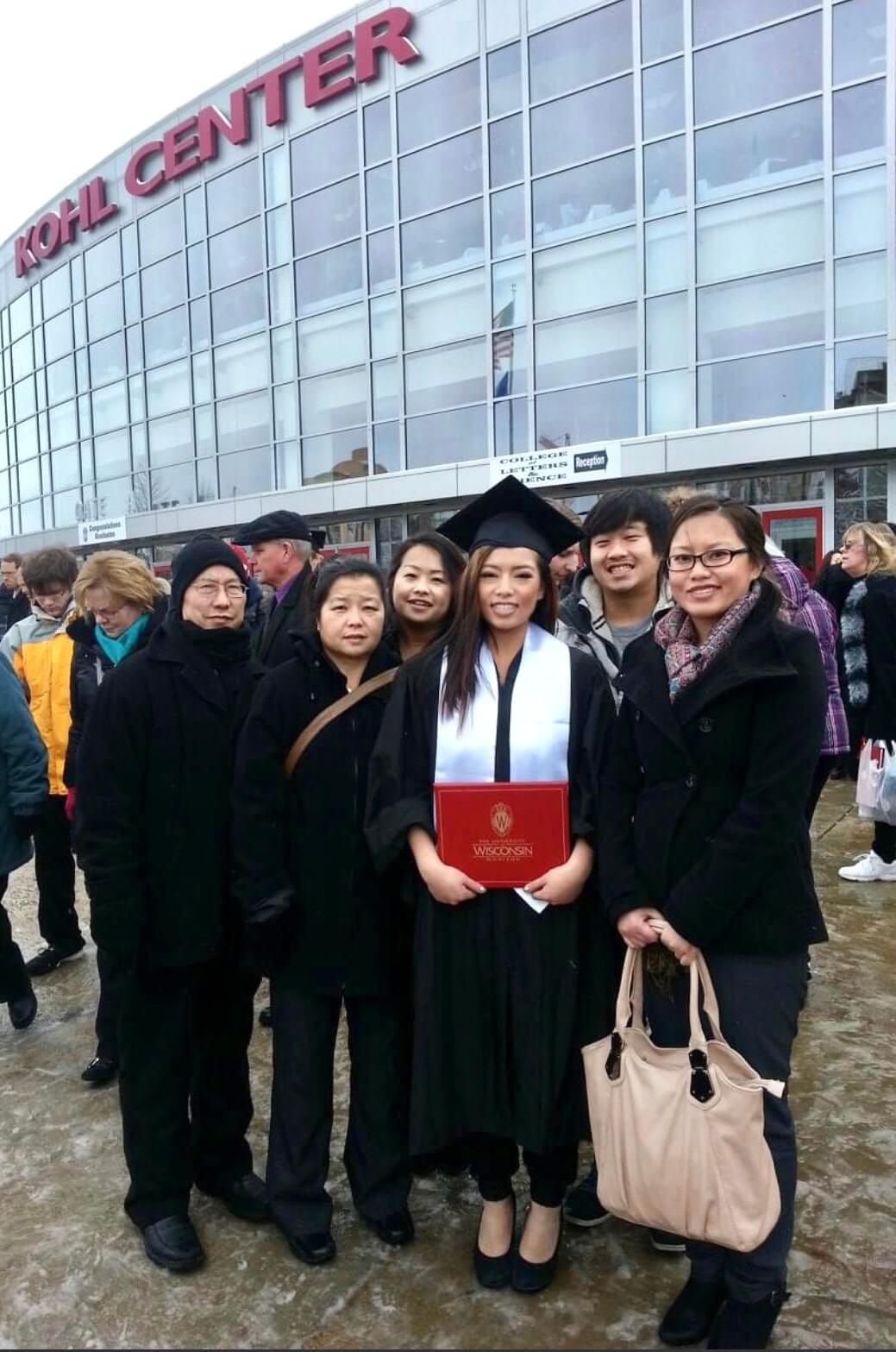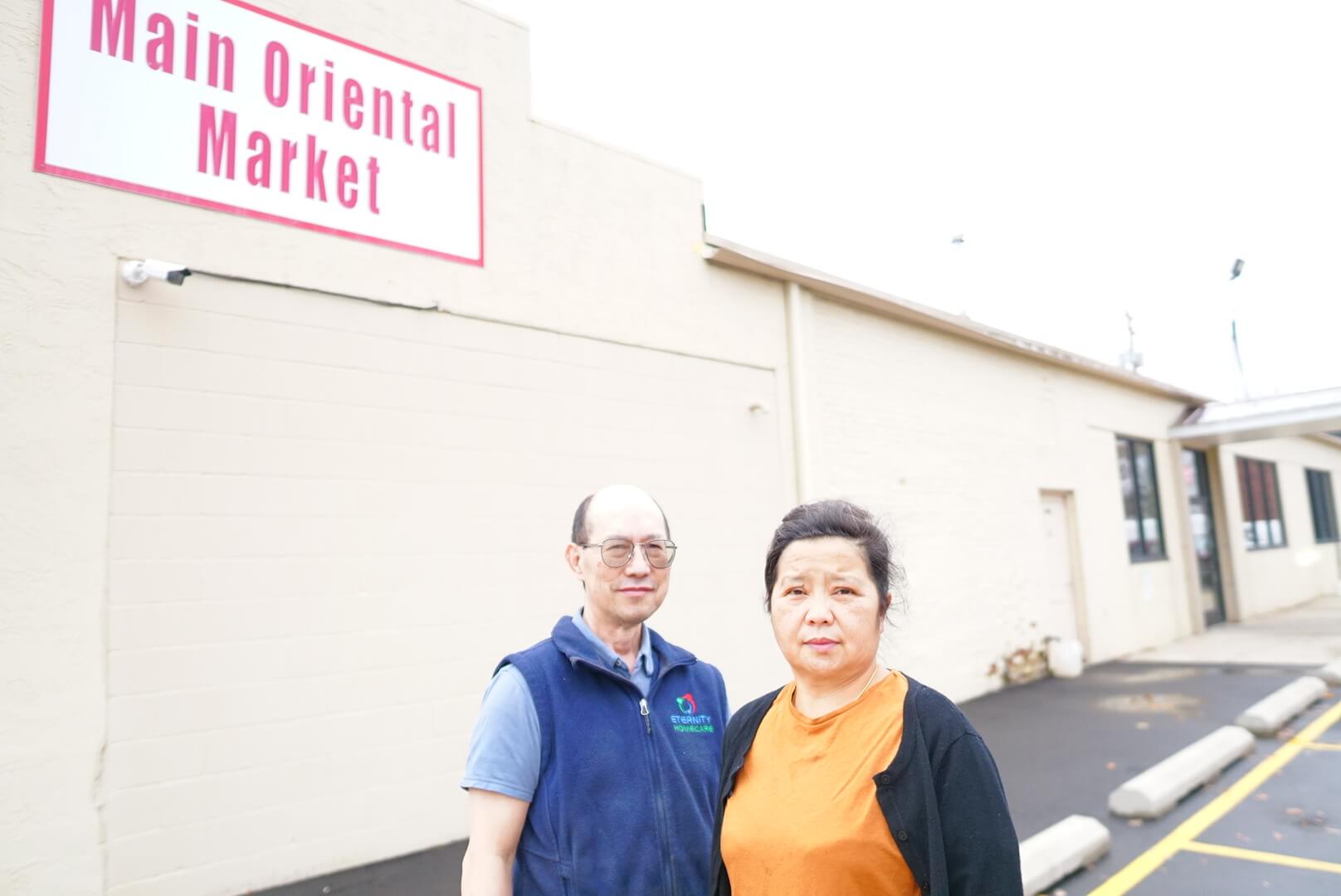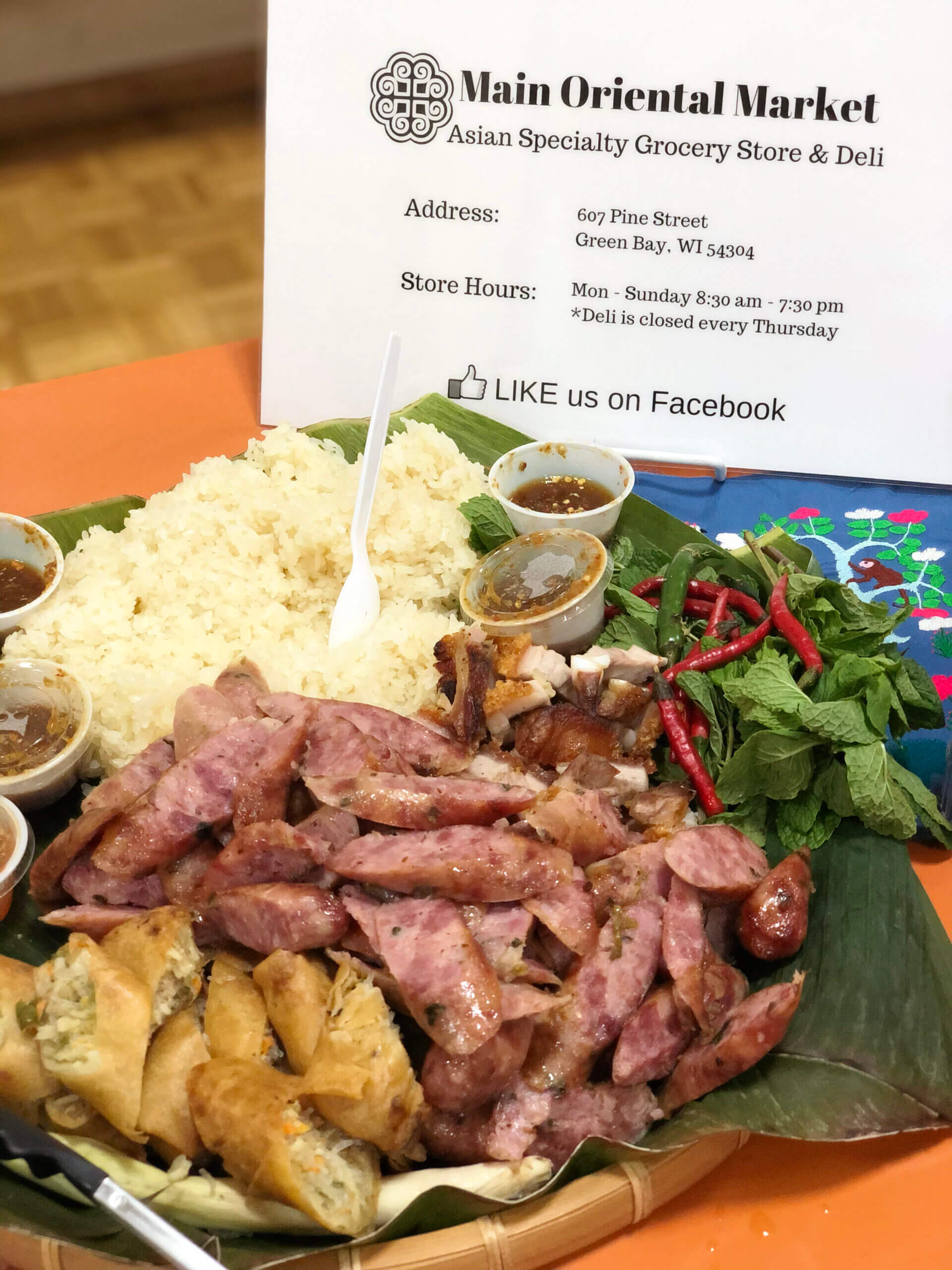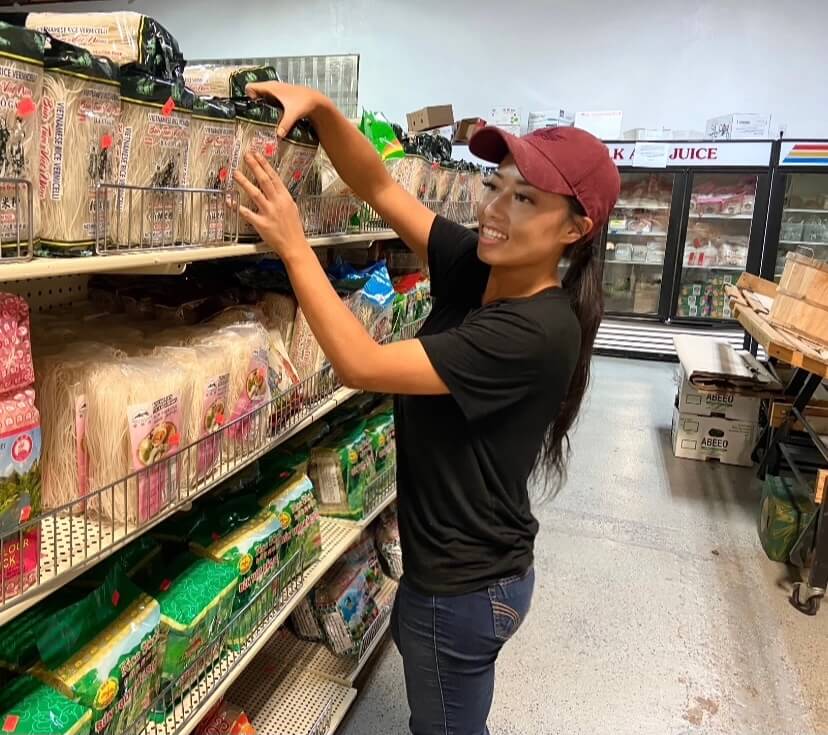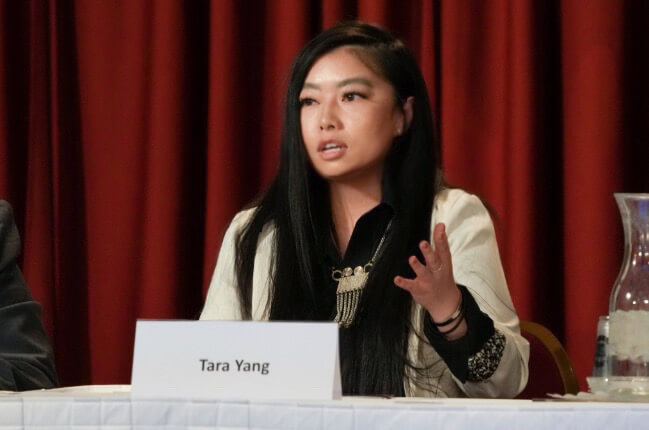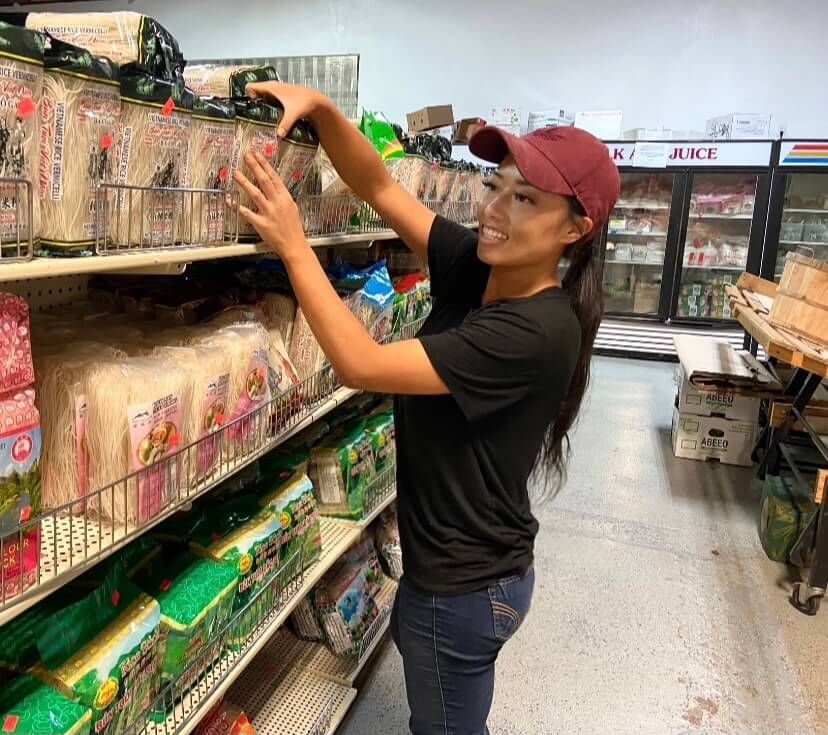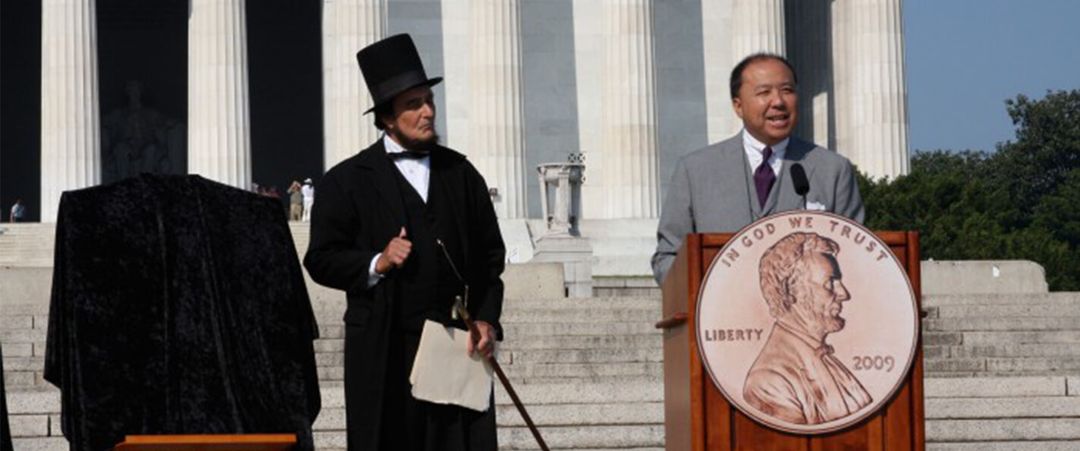At Main Oriental Market, shoppers get staple Asian foods and first-rate community service. Founded in 2005 by Bruce and Kao Shoua Yang, the market is the longest standing Asian specialty grocery store in Green Bay. Now managed by their daughter, Tara Yang ’13, the store has continued to grow and provide patrons with whatever they need, whether that’s traditional Hmong smoked meats or translation services.
When the Hmong Center of Green Bay closed in 2016, Main Oriental Market — and the Yang family — became an informal resource center for area Asian-American families. “Our goal is to provide resources that we didn’t have growing up,” Tara says, “[ones] that my parents didn’t have growing up.” Throughout the COVID-19 pandemic, the store hosted several mobile vaccination clinics and food donation drives. The Yangs also support community members by helping farmers find land and equipment to grow produce, translating medical and financial documents, and providing a space to share with family and friends.
“For us, it’s a full-circle moment because these are the resources that we wish we had growing up,” says Tara. “We can see that a lot of the families that we’ve helped serve for the past decade — the second and third generations have been prosperous and successful, and they’ve been able to have children who have gone to college as first-generation students.”
When Tara earned her life sciences communication degree from the UW a decade ago, she didn’t anticipate a career in advocacy and government. But the store’s de facto role as a community resource center also opened the door for her to become an official voice for marginalized groups in her hometown.
When she returned to Green Bay, several development projects were underway that threatened local small businesses — including her family’s grocery. Tara got involved by talking to Green Bay’s mayor and city officials about stopping plans to build a larger grocery store just across the street from Main Oriental Market. When an agreement with this larger business fell through, the city turned to the Yangs to fill the downtown-area food desert. In 2024, the city will still break ground for a new mixed-use building, but Main Oriental Market will move across the street to fill its commercial space as an expanded, full-service grocery.
Because Tara raised her voice, city officials noticed her family’s business, as well as Tara’s talent for advocacy. In 2019, the mayor appointed her to two different bodies to help bridge the disconnect between underserved community members and the city. She now serves as vice chair of the Green Bay Economic Development Authority Committee, and she became Green Bay’s first Asian American city commissioner for the newly established Equal Rights Commission. While sitting on Brown County’s inaugural Racial Equity Ad Hoc Committee, Tara also aided in the passage of an ordinance declaring racism a public health crisis in 2020. In recognition of their business and activism, Main Oriental Market won the 2020 Business of The Year Award from the Hmong Wisconsin Chamber of Commerce and in 2021, the Yang family was named one of the Top 34 Most Influential Asian Americans in Wisconsin. Tara was the 2021 Young Professional of The Year for the Hmong Wisconsin Chamber of Commerce and the 2022 Young Professional of The Year for the Green Bay Chamber of Commerce.
As Tara seeks to transform her family’s store into a full-service grocery, she’s also working to establish a new, full-service resource center for Asian Americans in the Green Bay area. “We’re not being super effective and efficient with the time that we’re providing the community because we’re using that space as a business 90 percent of the time,” Tara says. “The community deserves 100 percent effort.” She hopes to found a dedicated resource hub by the end of 2023.
In the meantime, Tara will continue to manage her family’s store as a one-stop shop for specialty groceries and community service. And she’ll keep raising her voice in local government on behalf of those often overlooked. “There are so many marginalized and underserved families and businesses here that don’t have the proper support,” she explains. “I want to be that support for those who don’t have an advocate for them.”
